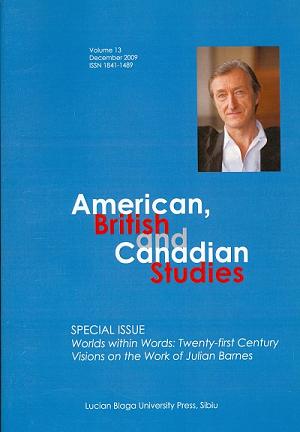The Erosion of Victorian Discourses in Julian Barnes’s Arthur and George
The Erosion of Victorian Discourses in Julian Barnes’s Arthur and George
Author(s): Bożena KucałaSubject(s): Literary Texts
Published by: Editura Universitatii LUCIAN BLAGA din Sibiu
Keywords: Edalji case; Arthur Conan Doyle; spiritualism; Victorianism; racial prejudice; religious crisis; rationalism; secularization
Summary/Abstract: The article argues that Arthur and George may be read as indicative of the condition of England on the brink of modernity, the birth of which was marked by the gradual disappearance of Victorian certainties. The alternating and momentarily intersecting stories of Arthur Conan Doyle and George Edalji trace the transformation of their personal attitudes but are also representative of large-scale national developments. The Edalji case, portrayed as a turning point in the lives of the two men, exposes deep-seated racial prejudice in English society, the weakness of the patriarchal hierarchy rooted in religion and the unreliability of the legal system. The failure of religious, legal and imperial discourses to provide him with a solid intellectual framework leads Edalji to a stance of growing scepticism, characteristic of the emerging twentieth-century world. It is claimed here that Doyle’s parallel story unfolds in the opposite direction: from the position of unbelief and rationalism (as befits the creator of Sherlock Holmes) he goes on to embrace spiritualism. The conclusion of the book, in which Doyle, despite his commitment to modernity, is paradoxically placed firmly again in the bygone late Victorian/Edwardian era, emphasizes the divergent perspectives of the protagonists.
Journal: American, British and Canadian Studies
- Issue Year: 2009
- Issue No: 13
- Page Range: 61-73
- Page Count: 13
- Language: English
- Content File-PDF

